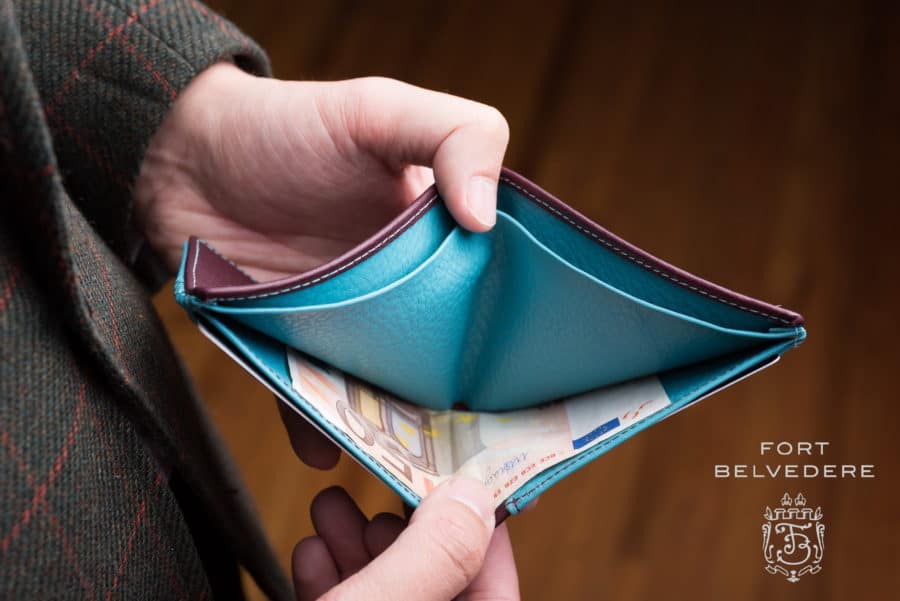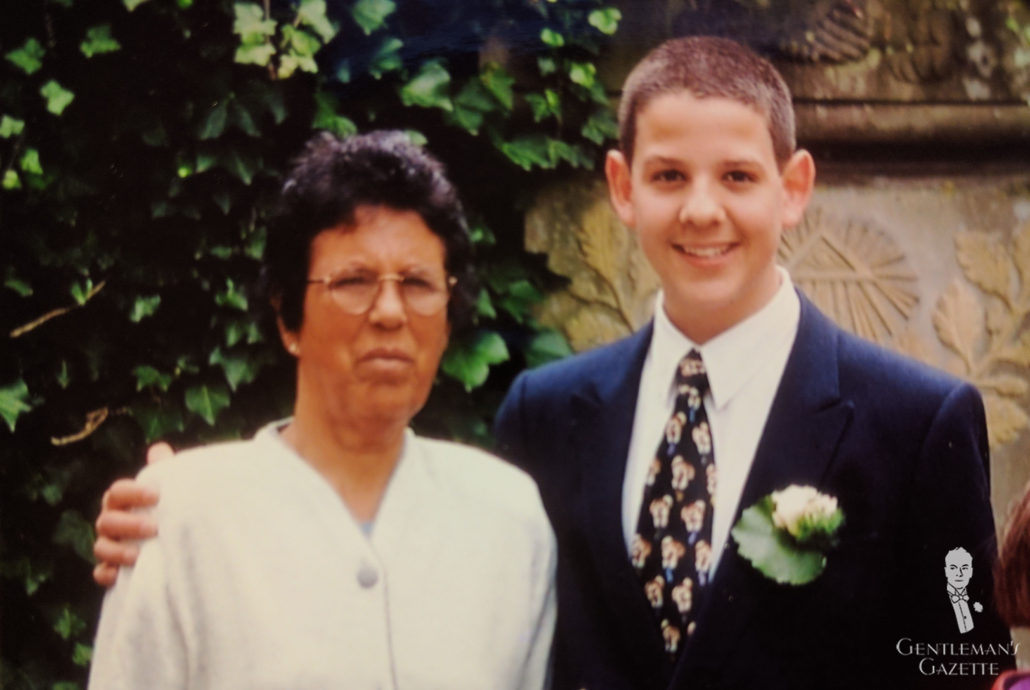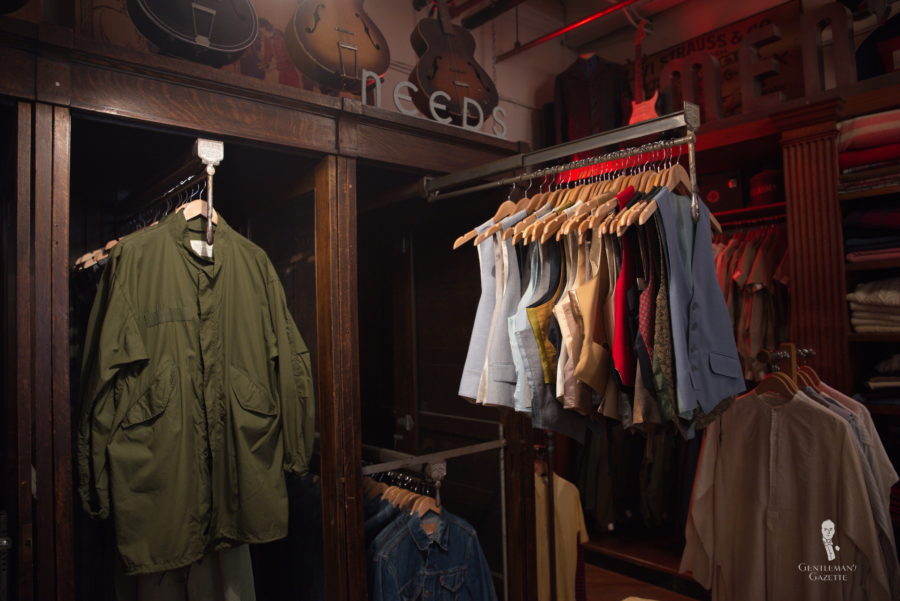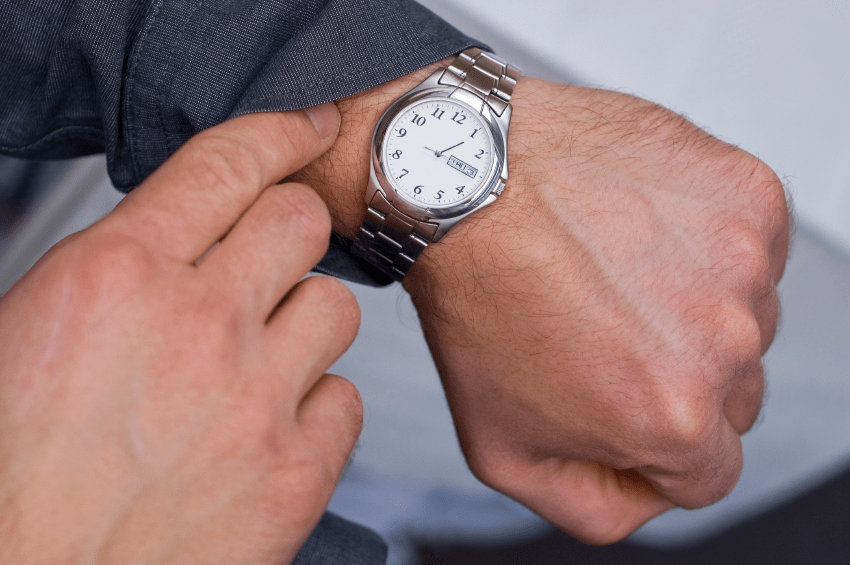Currently, I am in my mid-30s and 15 years ago, my life looked very different. I grew up in Germany with parents that were in the middle class, but neither my mom or my dad ever got any money from their parents, so building a home was always a financial struggle. Read on for the tips I learned by being completely broke.
- Looking Back: My Humble Beginnings
- 1. Money Itself Does Not Automatically Make You Happier
- 2. Self-Reliance Makes You Stronger & Wiser
- 3. Being Broke Or Rich Is Only A Matter Of Perception
- 4. Extra Money Does Not Just Simply Appear, You Make It Happen
- 5. You’ll Get By With Vintage Finds & Secondhand Goods
- 6. Being “Poor” Takes A Lot Of Time
- 7. Being Broke Makes You More Adaptive When It Comes To Problem Solving
- 8. You Deserve To Treat Yourself – Just Do So Responsibly!
Looking Back: My Humble Beginnings
In truth, I did get a small amount of pocket money as a child, but it was not much more than a bit of a change. So, I learned from an early age: if I wanted something, I had to work for it. My first job was as a paperboy at the age of 14, and then I got into selling fountain pens on eBay. This made me quite a bit of money, and that ultimately started my interest in classic men’s clothing.
After high school and doing my civil service, I ended up going to a private law school in Germany. This was the first time I was exposed to other kids who just had a lot of money that they got from their parents. One of my fellow students actually just flew home to his mom, bringing his laundry so she could do it for him there; that was a world that was entirely new to me. The German University System is quite good in the sense that they try to allow you to attend even if you come from relatively low or no means at all.

I had 450 Euros at my disposal, which at the time was about $500, so I had to pay rent from that which was about $300. Since this wasn’t cheap, I ended up staying at a really rundown place that was originally designed for officers’ widows; when there weren’t enough of them, they just put in students. I first started out in a very small shared room on the third floor of the building, but it didn’t have a bathroom in the unit. Every morning, I had to go downstairs into the basement where there was a coin-operated shower. For 50 cents, you got seven minutes of warm water, but you could stop it in-between; I was able to shower with just 20 seconds of hot water, and I saved most of my 50 cents that way!
At the time, my main form of transportation was a bike and even as a student, I worked at the University making some money on the side. I remember coming to the US, I didn’t have much more than my two suitcases and a few dollars to make a new start here. Today, I’m a lot more comfortable–however, being broke taught me a number of valuable life lessons.

1. Money Itself Does Not Automatically Make You Happier
Yes, I know that this is something that people usually say only after they have achieved a certain level of wealth. What I can say honestly, though, is that money has the ability to make your life a lot easier; things are less stressful, you don’t have to worry about any upcoming emergencies, you don’t have to do the math when you go grocery shopping, and it’s just easier to focus on the things that really matter in life. I definitely feel a lot freer now that I don’t have to worry about paying rent, and if there’s an emergency coming up, I can simply pay for it out of pocket. I can now pursue hobbies: I can take dance classes with my wife that I really enjoy, I can take piano classes, or just pursue anything else that gives me purpose or have a sense of self-improvement.

Overall, I’ve always been a very happy person even when I was broke. Just remember The Notorious B.I.G., who said, “Mo’ money, mo’ problems.” He definitely had a point! Social studies have shown time and time again that earning anything over $75,000 doesn’t make you a happier person, and sometimes it can even make you less happy because your life is all of a sudden a lot more complex. You’ll have to deal with tax issues, and other people may just want to hang out with you because you’re rich, not because they’re actually interested in you as a person.
While I’ve found that just being rich (or money itself) doesn’t make you happier, there are a few ways where you can utilize money to buy happiness. The big thing is that you have to invest in experiences with others, rather than in stuff. Once you have more money at your disposal, you automatically adjust your lifestyle and accrue more stuff, but it just becomes a new normal and it doesn’t make you happier. Instead, if you spend time with your friends or your family–maybe you take them on a trip and you can share experiences afterward–that definitely makes you happier. Also, spending money on others, and/or donating, usually makes you happier. Overall, use your money to do things you love, and that give you purpose.

For example, I love the Gentleman’s Gazette! I love to help men to become gentlemen and to improve themselves. That is my purpose in life, and so I enjoy it whether I make money or not. Also, instead of just buying something right now, it makes sense to pre-buy things–for example, a cruise with your family–something that you want to do that you look forward to, where you can relax and spend time with them. All the anticipation building up to the actual trip itself can be part of the fun!

2. Self-Reliance Makes You Stronger & Wiser
My parents always raised me to be very independent, and not just in terms of money. Other people would get a lot more pocket money, but they didn’t necessarily understand its value, or weren’t able to manage money better than I was. Overall, it’s a lot harder to adjust to less money than to more money. I pretty much always knew if I wanted something, I simply had to work for it.
3. Being Broke Or Rich Is Only A Matter Of Perception
My dad’s from Brazil, but we lived in Germany. Whenever we would go to Brazil and visit relatives, they all thought we were filthy rich, so they all expected us to bring a lot of gifts and to pick up the tab. In reality, my parents were in debt and had to worry about how to pay for the mortgage and make ends meet. But we lived in a different country and even though we had more money overall, relatively, we were not richer or poorer than the people in Brazil.

4. Extra Money Does Not Just Simply Appear, You Make It Happen
If you don’t manage your money upfront, you’ll just spend it–at least, that’s what I do, as well as most people I know. If you never plan to set aside money for an emergency upfront, chances are it’ll hit you very hard and it’ll have very drastic consequences. That means you have to be very deliberate about your money; you have to set yourself a budget and then apportion the money right when you get paid in the beginning, otherwise, it’s just not going to happen.

5. You’ll Get By With Vintage Finds & Secondhand Goods
Honestly, until I was in my 20s, pretty much everything I bought was either on sale at a store, it was a hand-me-down from someone, or it was a vintage item. Even though I got certain outfit elements that were quite a bit bolder and not foundational wardrobe pieces, I still have a lot of the items from that period, because they have a certain timeless character that allows me to wear them now but also ten years from now.
At the time, I always focused on great value, finding handmade garments that no one else knew because they didn’t have a certain brand name but they fit me and made me feel good. Even though I was relatively poor, I always felt I could buy stuff on eBay; since it was so inexpensive, I could justify it. If I take a step back now, though, I can see that I spent a lot of money on a lot of stuff, none of which were foundational wardrobe pieces. Because of that, I ended up giving a lot of it away or selling it. Essentially, it was almost like an addiction where I spent a little money at a time on eBay, trying to convince myself that I got good deals, when in reality it was just spending the money that I probably could have saved up and gotten something that I really wanted instead.

6. Being “Poor” Takes A Lot Of Time
If you constantly have to think about how you’ll pay for your groceries, rent, and any kind of other expense, your mental capacity is just focused on that and your brain is left spinning. Phrased another way: if you don’t hire anyone, you do your own laundry, your own cleaning, your own cooking, and all those things–yes, you’ll save money by doing it yourself, but that doesn’t allow you to spend time with your friends or with your family.
Also, don’t take too much time constantly looking for discounts and deals. Let’s use gas as an example; you may be able to figure out where you can save five cents more, but then it means you actually waste 20 minutes of your lifetime plus the gas to get there. These are the kinds of time-sinks that ultimately are not really worth it to me, looking at it from my viewpoint today. Honestly, while it does pay to stay in a budget, you should also understand that your time is valuable and that you can use your time to work and make money rather than just to endlessly look for discounts.
7. Being Broke Makes You More Adaptive When It Comes To Problem Solving
If my car were to break down today, the fix would be easy: I’d just go to the dealership and have them fix it. If that isn’t currently an option for you, though, there are still solutions: maybe you could ask someone for help (with the promise of helping them out in return), or you go to YouTube and figure out how to fix it yourself. Trying to overcome an obstacle when you don’t have the money to fix it is a really valuable lesson that has stayed with me, even now that I’m a lot more comfortable financially.

8. You Deserve To Treat Yourself – Just Do So Responsibly!
So how do you treat yourself when you’re broke? Well, you buy little things that don’t have a high cost or a long-term monthly recurring cost. You can go out with someone to a restaurant that’s not super fancy, but the gesture counts and you can still very much enjoy it, sometimes even more so than in a fine dining establismnet. Maybe you buy yourself a jacket that you’ve always wanted, and that you need because it’s cold outside. Just remember to honestly ask yourself: “Is this something I really need, or is it just something I want?” If you need something every once in a while to keep going, it’s okay. Just stay away from long-term contracts and don’t put it on a credit card, because accruing high interest will cost you a lot more.


Hey Sven!
Thanks for this post-I really liked it. And I admire what you made of yourself. It’s so much more genuine and interesting to me than the typical “success stories” for which I am developing an abiding loathing. I have developed a real fondness for Germany! I just spent a month in Bonn, and found everyone really welcoming and friendly. I agree with virtually everything you say. One needs interests in life that are not monetary-I happen to like mathematics, playing the guitar, collecting fountain pens, and reading good literature, and these interests provide a context within which life gains meaning. I aspire to be a gentleman, but probably fall short! I do like your fondness for fine things though. I admire fine craftsmanship wherever I can see it! But it is crucial to have a healthy respect for money-within limits, it is a necessary, but not sufficient condition within which life has meaning.
I love this MAN site!! I learn so much; love fashion as does my son. He got me started here when I purchased some beautiful deep burgundy suede gloves for him. Thanks for the advice!
I’ve always been puzzled by your accent. You say that you grew up in Germany, though you also mention that your father came from Brazil and that you visited Brazil when you were growing up. Which is your first language—German or Portuguese?
That’s an excellent question to help explain why Raphael’s narrative contradicts German reality and sounds like he was never really integrated. If Rafeal does speak German at home with at least his father, perhaps his paternal ancestors were Amish or Mennonites who left for South America. Raphael thinks like many South Americans who prefer to live in US. Even an authentic German who was conpletely Americanized would sound different.
I am German myself and once had the honor to correspond with the author in our both native language, and I can say with absolute certainty that we share our native language and that he therefore did grow up in Germany.
And then, his accent is not too different of mine, actually, namely that of a German who just happens to be a lot more gifted in foreign languages than others.
Please refrain from such odd speculations as yours.
Alex F. confuses German language profiency with German mentality. Furthermore, Alex F. completrly ignores facts of German life like home ownership and private
law school (!).
Dear Raphael ,
Thankyou for sharing this insight of some of the things which have shaped you .
From the aspect of money (which is a great tool) I have a great respect for it and it has taught me a lot . I have to say the quote of Grouch Marx became a maxim in my life ; ” Don’t lend people money it gives them amnesia “.
Nothing though can beat having family and good friends around you and be a man of firm moral principal to share this great wealth with .
As my father was fond to say; “You don’t get tough winning”.
Now my career is winding down, can’t help but look back and think on the successes, failures, triumphs and humiliations. Of late some of my favorite vids involve, in essence, “the Right To Fail”. Incredibly, I happen to think it’s one of our most basic rights. At least at present, we’re not taken out back and executed for our failings. Unfortunately we now live in a culture where one’s being in less than optimal circumstances are not only considered acceptable, they’re a permanent state of being. Driving a beater, having living arrangements that involve roommates ( or parents ) are all fine and well when you’re in your teens or early 20’s. My advice? Become rich! ( It’s a LOT easier than being poor… )
Money can’t buy poverty.
Not so sure about that: I have seen it happen more than once.
“Tapped” — dated slang for broke, same thing though. Removed EVERYTHING extraneous. Learned how to cook on a super tight budget, wore vanilla extract for perfume, pinched the penny good. Survived. Haven’t been broke in decades, good — but these days I still shy away from $$$ beaucoup restaurants, prefer earthy ethnic cafes. Still wear drug store makeup as for much it’s in the artistry of application. Still hitting thrift shops every where, and yes vanilla extract.
Thank you for sharing yourself with us.
Only a real poor person can say that money doesn’t make you happy. When somebody speaks his/her poor past, this is always strange for me. It reminds me one of the Monty Python comedy, where wealthy people speak abot their hard childhood.
Your description of life in Germany is completely misleading for persons not familiar with Germany and reveals that there is something strange about you, with all respect. For example, how many persons buy or even build their own homes in Germany, or your wierd decision to attend a “private law school” (?). What you say about that time – using coin showers and having a colleague who flies his dirty laundry home to his mother is sick – no offense intended.
What you write about yourself and your experience of Germany is so uncharacteristic one can really say you were indeed a wierd stranger to Germany who transported the values and mentality of a foreign land to where his parents brought him and remained a stranger! It is not surprising you left Germany and live in Minnesota! You may have a German name, but your approach to life in what you call Germany sounds like somewhere else – how utterly odd!
I don’t know wether this belongs here, but maybe Sven is “strange” in the sense that he belongs to a rare breed, namely that of expatriates or emigrants. And this is by far not to be meant in his dishonor: it takes a little something, a particular mindset to be able to live in another country than that one was born in. Maybe this can come off as “odd” to their sorroundings, as a stranger in their own land, but maybe it’s really just the internal distance to one’s country and intercultural competence it takes to be a successful emigrant.
Also, one might take into consideration that everyone perceives growing up in one given country as a completely different experience, depending on many factors, for instance a parent stemming from another country and bringing in an outside perspective.
I myself grew up in the same country as the author and I also share the experience of having left it for good. That’s about all, and maybe his experience is not mine, and how could it be? Calling it “uncharacteristic” is, however, an odd and unjustified reproach to his story. If Sven’s story was “characteristic”, this gazette would not exist, after all. And therefore I think we should be glad it isn’t.
Alex F. pretends not to know many foreigners in Germany from economic, but seldom cultural reasons. Sven and his parents used Germany for its economic advantages and Sven left for US which fits his mentality.
I have no doubt Alex F has German mentality because despite writing in
English the one-sided abstract and complicated mental confusion charscteristic of many German intellectuals emerges.
Peterchen, please take some lessons in English grammar, argumentation and good manners before we can continue our discussion. After all, this site created by an “untypical German” offers at least good articles about the last two subjects. If you didn’t pay attention in English class to the fact that an interlocutor is usually adressed in second person and the pronoun “you”, you will find a lot of helpful free ressources elsewhere.
Thank you. Meanwhile, I will be waiting for your point.
Dear Peter,
I grew up in the rural south of Germany, where a lot of people build or own their small home. My parents never thought they could own one, but in the 80s they went into debt to give it a try.
Private universities in Germany are not the norm but many of them exist, and I chose to attend one, nothing weird about that. You also don’t have to pay for them upfront as they want to give people from a lower class background a chance to attend. Germany, just like the US is manifold, in the language, cuisine and mentality of the people etc.. Maybe my experiences were very uncharacteristic for you, but that doesn’t mean it did not happen in Germany. All the stories in the videos are true, and when I was a student my net worth was negative, I would call that completely broke.
I once visited a friend in Berlin in 2003 and she lived in an apartment in Wedding that had to be heated by coal. So when you walked up you brought your bucket of coal. Is that uncharacteristic for Germany? Yes it it but it was a reality in Berlin Wedding in 2003.
My parents did not bring me anywhere, I was born in Germany. I left Germany because I fell in love, and my approach to life is definitely not the norm, after all I am an entrepreneur and that is a minority in Germany but that makes it no more or less German. Look at the Nationalelf – most people who play there don’t look like the people who played there in 1950, but they are all German.
Based on your comment, it seems like you might want to consider a less ignorant and more open-minded approach especially when you talk about other people that you don’t know.
Hi Raphael,
Thank you so much for your insight. It reminded me of when I was in the military and my wife and I had to deal with military pay. We developed an axiom of “we are too poor to buy cheap”, meaning that when we made large purchases, say a washer or dryer, we always saved up our pennies and bought the highest quality, most durable ones we could find and afford. We just didn’t have the money to pay for repairs on cheap goods! Now that we’re in a good place (I’m retired), we find that we still exercise our axiom much to our advantage. Saving for a major purchase is much more preferable for us than putting something on the credit card or buying the quick and cheap item.
Tough crowd! Grateful for the post and your transparency on your upbringing. I can relate to being different from those that surrounded me and having to work hard in order to attain a measure of success. One of my high school teaches encouraged me, before I went off to college where I would have to work and go to school, that I would appreciate my achievements more because of the hard work I had to put in in order to obtain them. She was correct. Go Terp!